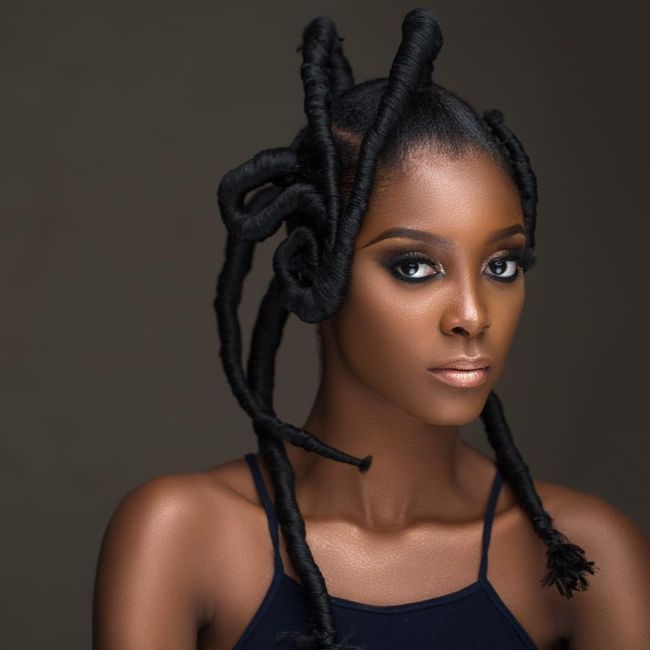Within the natural hair community, there are a lot of tried and true secrets to great hair.
It’s our job to make sure those secrets don’t stay that way, and share looks, tips, and tricks from everyone and everywhere with our readers. And speaking of spreading the word, have you ever heard of African threading? If you haven’t you’ve probably got a few questions. What even is African Threading? Is the thread African? The technique? And what part of Africa are we talking about anyway?
Calm yourselves, curlfriends, we’ve got the answers for you! Let’s take a closer look at this hair method that has been a part of the natural hair community for generations.
What is African threading?
Well, let’s start with what it’s not. We’re not talking about threading like threading needles. Or threading like how you get those extra hairs away from your otherwise perfect eyebrows. Nor is this about the fun multi-color wraps that you might get on a few strands of your hair for a pop of color. What it really is, is a technique for lengthening your hair without having to reach for the heat tools.
African threading is actually a protective style in its own right and involves taking black thread (or whatever matches your hair color”> typically, and wrapping it in a corkscrew fashion around about a pencil sized section of strands from root to tip. The hair is not completely covered as with a fun thread wrap, instead, you’ll see it ‘poof’ out from the thread as it spirals downwards. This tradition has been a part of hair care in many Subs Saharan African societies for generations, and is called Nywele in regions where Swahili is spoken. People choose this method of styling with protection and the ability to help retain length in mind. When hair is wrapped in thread, it leads to less manipulation which is great for your strands. Since your hair isn’t exposed to as much breakage from overhandling, you can also get length retention as a sweet bonus. African threading can also be used for stretching hair to avoid shrinkage, and if you do want to be bold, it’s also a great way to create an easy style. There’s also no hard and fast rule saying you absolutely MUST wrap your hair in a neutral color, and in fact: many intricate styles can be created by using colored thread instead! The stiffer “locks” that the threading creates also lends a buildable property to your hair and allows for a wide variety of gravity defying looks!
Should I Try African Threading?
We know you’re excited, but as always curlies, you’ve got to pump those brakes just a tad. There are a few considerations prior to trying this hair method (but what else is new, right”>. While most hair types are well suited to this method, you will need to make sure your hair is completely detangled—otherwise, you’re not doing anything but protecting and preserving some knots. Not exactly ideal. You also want to make sure your hair is well moisturized. That’s a given at any time, but it’s especially important to make sure your hair is getting some extra TLC while in a protective style. Another thing to keep in mind is the type of thread you choose. While you can choose more of a matte looking thread, a glossier nylon option will give hair a lovely sheen. A glossy thread will also be slightly gentler on your strands during the removal process—no rougher bits to snag your strands! You can also use yarn over thread, but it’s best to use yarn that’s 100% cotton to avoid tugging. And again, keep your spray bottle on hand, cotton does like to sip moisture from our coils. If you go with thicker more absorbent thread, don’t leave the style in for more than a week to prevent your hair from getting too thirsty!
Want to learn more?
When is the answer to that ever no? Check out 4C curlista Miss Sharz as she stretches her TWA into a fine, fierce ‘fro!
True magic.
Interested in trying this for yourselves, curlfriends? Hit up a fabric store, and be sure to tag us @naturallycurly with your results!
Photo credits:
Model| @teminikan__
Makeup| @ghunueffect
Photography| @mr_adore
Studio| @rainbow__studios
Hair| @hairbyope_smade

